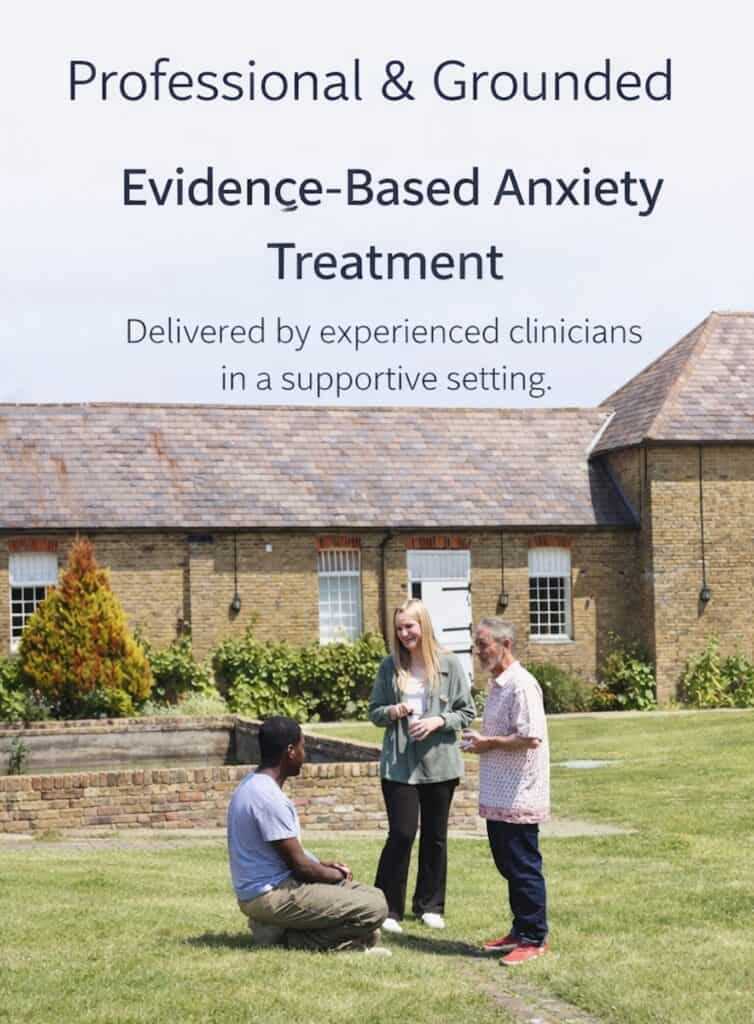Contact us
Expert Anxiety Treatment to Help You Regain Control
CQC registered clinic • Confidential consultations • Appointments available quickly • No pressure to commit
Persistent worry, physical tension, panic or a sense of dread can make everyday life feel overwhelming. If anxiety is affecting work, relationships or sleep, specialist anxiety treatment can help you regain a sense of calm and control.
Speak to our team today about anxiety treatment options, or complete our secure enquiry form — no obligation to book.
When anxiety becomes a problem
Feeling anxious is part of being human, but for some people the worry does not switch off. You might notice racing thoughts, difficulty sleeping, irritability, physical symptoms such as a tight chest, stomach upset or palpitations, or avoiding situations you used to manage.
PROMIS supports people experiencing generalised anxiety, panic attacks, social anxiety, health anxiety, phobias and anxiety alongside other conditions such as depression, trauma or addictions.
How We Help You Reclaim Your Life
Treatment begins with a detailed assessment to understand your symptoms, history, physical health and current pressures. From there, we create a personalised plan that may include:
- One-to-one therapy using evidence-based approaches such as cognitive behavioural therapy (CBT) and other proven psychological therapies for anxiety disorders.
- Trauma-focused therapies when anxiety is linked to difficult or overwhelming experiences, as recommended in national guidance.
- Group therapy and psychoeducation to learn practical skills for managing worry, panic and avoidance in everyday life.
- Medication review and ongoing monitoring by experienced medical staff where appropriate.
- Holistic supports such as exercise, mindfulness, sleep and lifestyle interventions, which have been shown to help reduce anxiety symptoms for many people.

Contact us
What happens when you contact us
When you get in touch, our team will usually:
- Arrange an initial conversation to understand your current situation and decide whether PROMIS is the right service for you.
- Offer a comprehensive assessment with a suitable clinician and, if needed, medical review.
- Share a clear recommendation for treatment, including setting, likely length and fees, and discuss any questions you may have.
If you are in crisis
PROMIS is not an emergency service. If you are worried you might hurt yourself or someone else, or feel unable to stay safe, please seek urgent help via NHS 111 (and choose the mental health option), your local Accident & Emergency department, or crisis team.If PROMIS is not the best fit, we will signpost you to other appropriate services where possible.
Why choose a private clinic for anxiety?
- Rapid access to assessment and treatment, avoiding long waiting times.
- Time and space away from everyday pressures if you choose a residential stay, allowing intensive work on anxiety and any co-occurring issues.
- A multidisciplinary team with extensive experience in mental health, addictions and complex presentations, able to address anxiety in context rather than in isolation.
Treatment can be delivered in our residential programme, as a day patient or via outpatient/online appointments, depending on your needs and circumstances.
